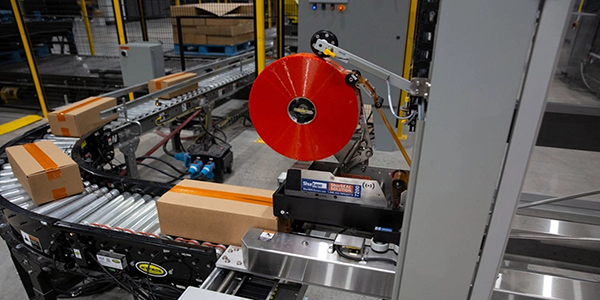Manufacturers and packaging line workers know that the temperature at which a case sealing operation occurs has an impact on the success – or failure – of a carton seal. This application temperature – the temperature at which packaging tape is applied – is important to consider, as extreme hot and cold temperatures can negatively affect the integrity of many tapes.
In the food and beverage industries, case sealing is often done in cold environments due to the need to keep carton contents refrigerated. When the application temperature is near or below freezing, many packaging tapes fail to properly adhere to corrugated surfaces. This occurs because packaging tape requires wipe down force in order for the adhesive to penetrate into the substrate of the carton, and adhesives that are not formulated to perform in cold temperatures tend to become brittle and lose their stickiness in low temperatures. In cases where tape is applied in a comfortable temperature but stored or transported in a much colder temperature – this is referred to as the service temperature – the tape can flag or become loose over time, subjecting the contents to pilferage or damage.
While it is not as common of a complaint in packaging operations, extreme heat can cause some packaging tapes to fail due to shrinking of the backing and pulling away from the substrate of the carton. This is especially true when tape is stored in a very hot environment for an extended period of time before being shipped to its destination.
For many manufacturers, case sealing in extreme cold or hot temperatures can’t be avoided, but choosing a packaging tape that is engineered for reliable performance in those harsh environments will reduce the need for reworks caused by tape failure, saving time and money. Read your tape’s recommended usage and temperature range to determine if it is the best fit for your application.
Does your packaging operation demand a tape that stands up against high or low temperatures? Find a tape at rhbopptape.com.
Post time: Jun-13-2023






